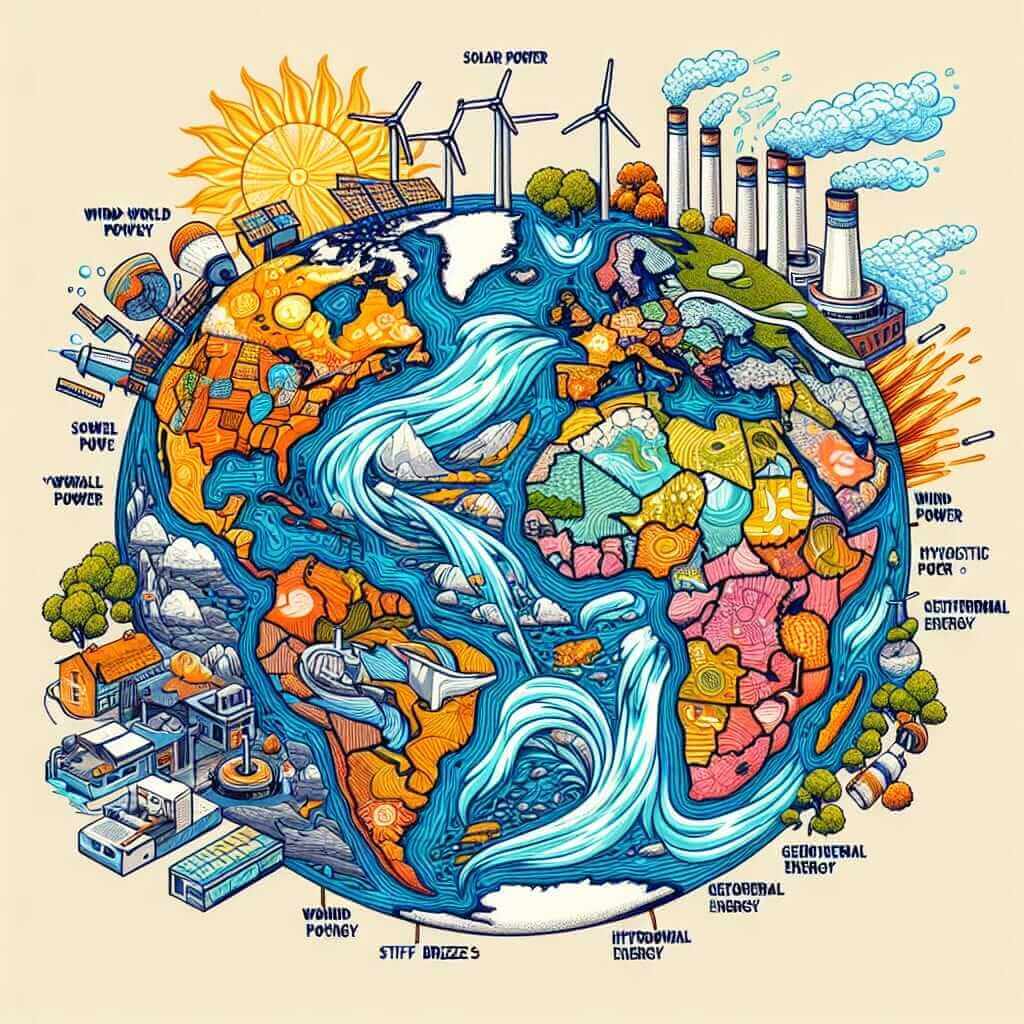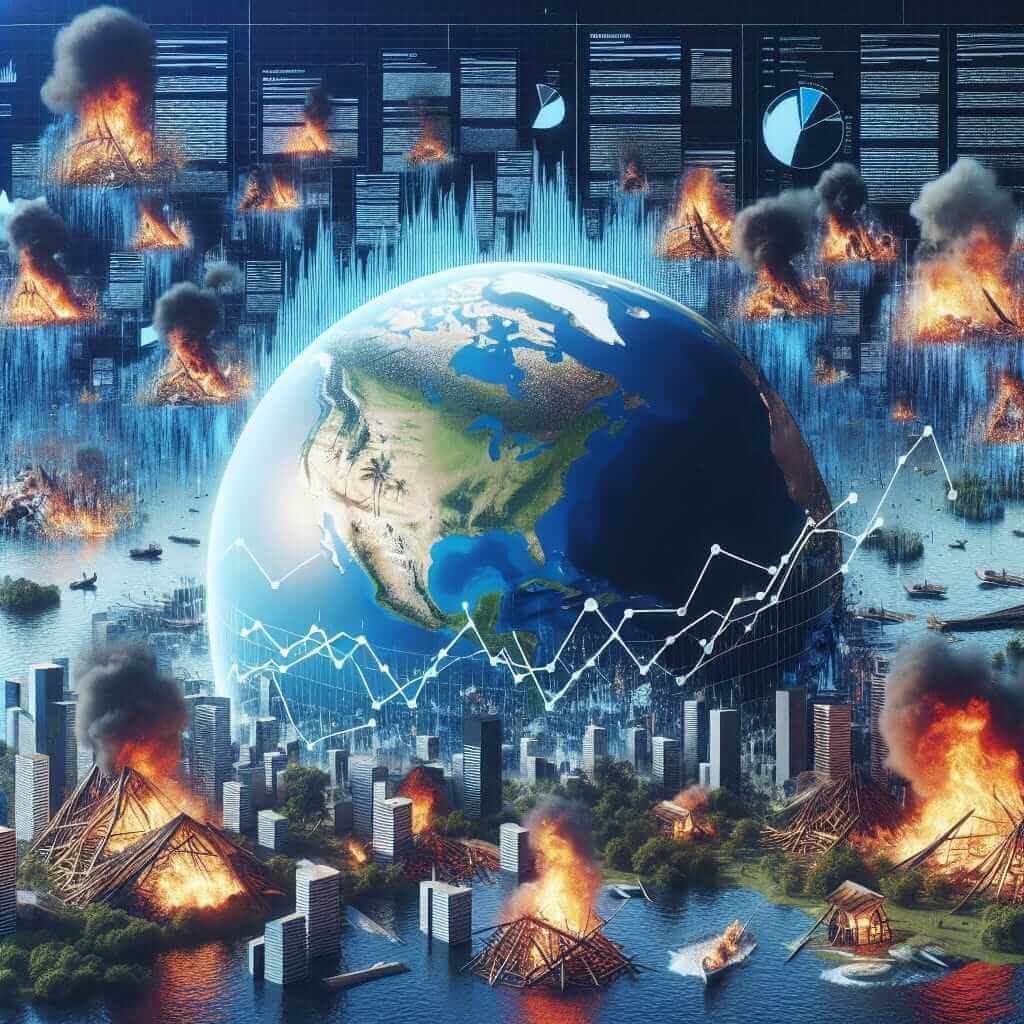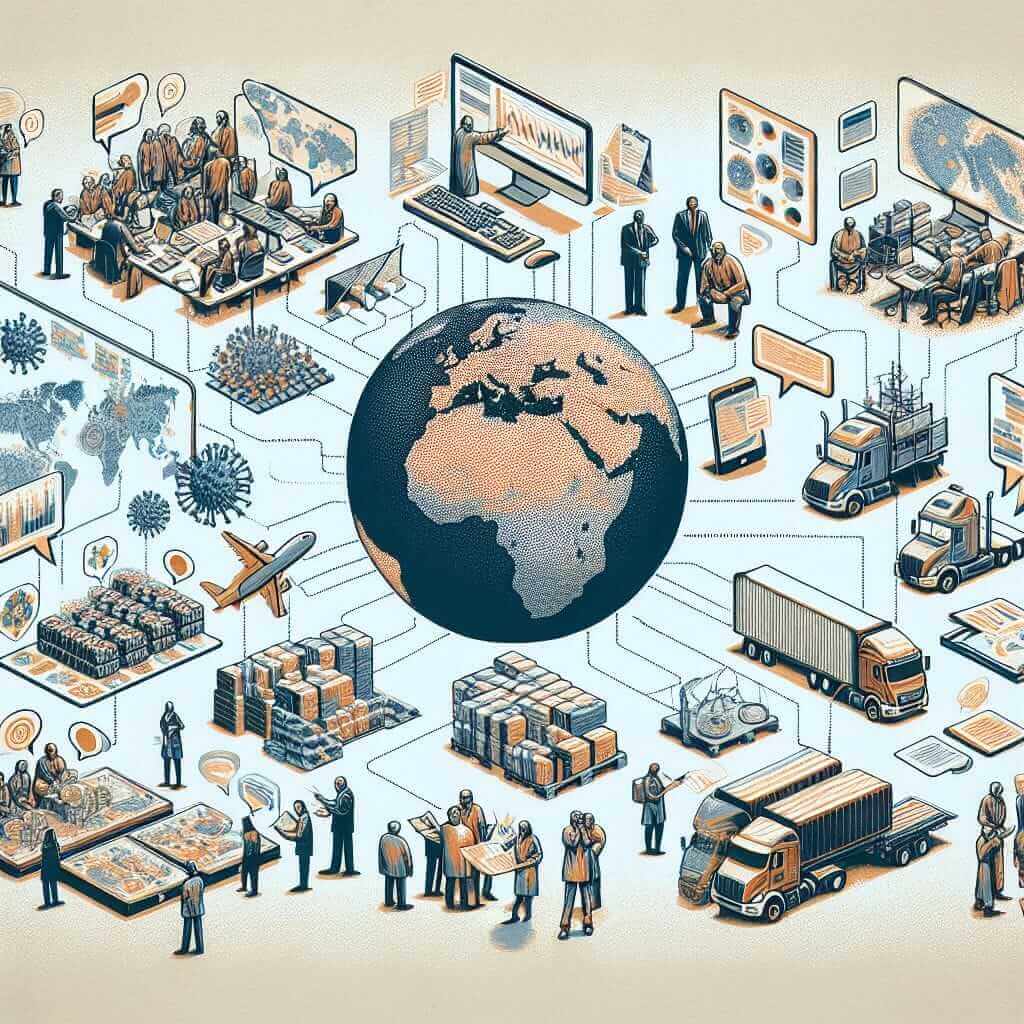The IELTS Reading test is designed to evaluate a candidate’s ability to understand and process written English. Within the context of environmental issues, energy independence is a topic that has emerged frequently due to its relevance. Based on historical data, this theme has appeared in the IELTS exams, thus understanding its challenges can be crucial for test-takers.
Challenges of Achieving Energy Independence
Passage for IELTS Reading Practice
The passage below is designed as a practice reading text for the IELTS Reading section. It is structured to reflect the medium difficulty level of the actual exam.
Achieving Energy Independence: Obstacles and Solutions
Energy independence has been a primary goal for many nations worldwide. It refers to the ability of a country to supply all its energy needs without importing energy resources from other nations. The pursuit of this goal stems from the desire for national security, economic stability, and environmental sustainability. However, achieving energy independence poses several significant challenges.
One of the foremost challenges is the high cost of developing and implementing renewable energy technologies. Solar and wind power require substantial initial investments in infrastructure and technology development. Although these costs are decreasing due to technological advancements, they still represent a considerable barrier for many countries, especially developing ones.
Another challenge is the variability of renewable energy sources. Unlike fossil fuels, renewable energy sources like wind and solar power are not always available. This inconsistency demands the development of efficient storage systems and grid management technologies to ensure a stable energy supply. Without these advancements, energy security remains compromised.
Additionally, transitioning from fossil fuels to renewable energy can lead to economic disruptions. Fossil fuel industries are deeply entrenched in many economies, providing numerous jobs and substantial revenue. Shifting to renewable energy can result in job losses and economic instability unless there are well-planned transitional policies and programs in place to mitigate these effects.
Finally, there are geopolitical challenges associated with energy independence. Many countries rely on energy imports from politically unstable regions. Reducing dependence on these regions through energy independence could alter international relations and trade dynamics, potentially leading to conflicts or economic sanctions.
Despite these challenges, achieving energy independence is not an unattainable goal. Continued investment in renewable technologies, coupled with strategic policies and international cooperation, can pave the way towards a sustainable and energy-independent future.
 Global Renewable Energy Sources
Global Renewable Energy Sources
Questions
Based on the passage above, answer the following questions:
Multiple Choice
-
What is one primary reason countries pursue energy independence?
a. To decrease technological advancements
b. To improve national security
c. To increase energy imports
d. To decrease environmental sustainability -
Which of the following is mentioned as a variable and inconsistent energy source?
a. Fossil fuels
b. Nuclear energy
c. Solar power
d. Hydroelectric power
Identifying Writer’s Views/Claims (Yes/No/Not Given)
- The author suggests that the cost of renewable energy technologies is increasing.
- The passage implies that energy independence is impossible to achieve.
Matching Information
- Match the challenges to their descriptions:
- High cost of renewable energy development
- Variability of energy sources
- Economic disruptions
- Geopolitical issues
Sentence Completion
- Achieving energy independence could potentially alter __ and __.
Answer Keys
Multiple Choice
- b. To improve national security
- c. Solar power
Identifying Writer’s Views/Claims
- No
- Not Given
Matching Information
-
- High cost of renewable energy development: Substantial initial investments
- Variability of energy sources: Need for storage systems and grid management technologies
- Economic disruptions: Job losses and economic instability
- Geopolitical issues: Potential conflicts or economic sanctions
Sentence Completion
- international relations, trade dynamics
Common Mistakes to Avoid
- Misreading the text: Many students fail to identify key details due to haste. Careful reading is crucial.
- Vocabulary misunderstanding: Misinterpreting key terms can lead to incorrect answers. Always practice and enhance your vocabulary.
- Skimming incorrectly: While skimming is useful, ensure you grasp the main ideas and key details that answer the questions.
Vocabulary
Key Terms from the Passage
- Independence (noun) [ˌɪn.dɪˈpen.dəns]: The state of being free from outside control.
- Infrastructure (noun) [ˈɪn.frəˌstrʌk.tʃər]: The basic physical systems of a business or nation.
- Renewable (adjective) [rɪˈnjuː.ə.bəl]: Capable of being renewed; sustainable.
- Geopolitical (adjective) [ˌdʒiː.əʊ.pəlˈɪt.ɪ.kəl]: Relating to politics, especially international relations, as influenced by geographical factors.
Grammar Focus
Important Structures
- Relative Clauses: Used to define or identify a noun.
- Example: “Countries that invest in renewable energy…”.
- Passive Voice: Often used in formal and academic writing.
- Example: “The costs are decreasing due to technological advancements.”
Tips for High IELTS Reading Scores
- Time Management: Allocate specific times for skimming, reading, and answering questions.
- Paraphrasing Practice: Improve your skill in identifying paraphrases to spot answers more quickly.
- Regular Practice: Consistent reading of diverse topics enhances comprehension and speed.
By focusing on these strategies and thoroughly understanding the passage, you can significantly boost your performance in the IELTS Reading section. Practice diligently and remember, every effort counts towards achieving your desired score.


